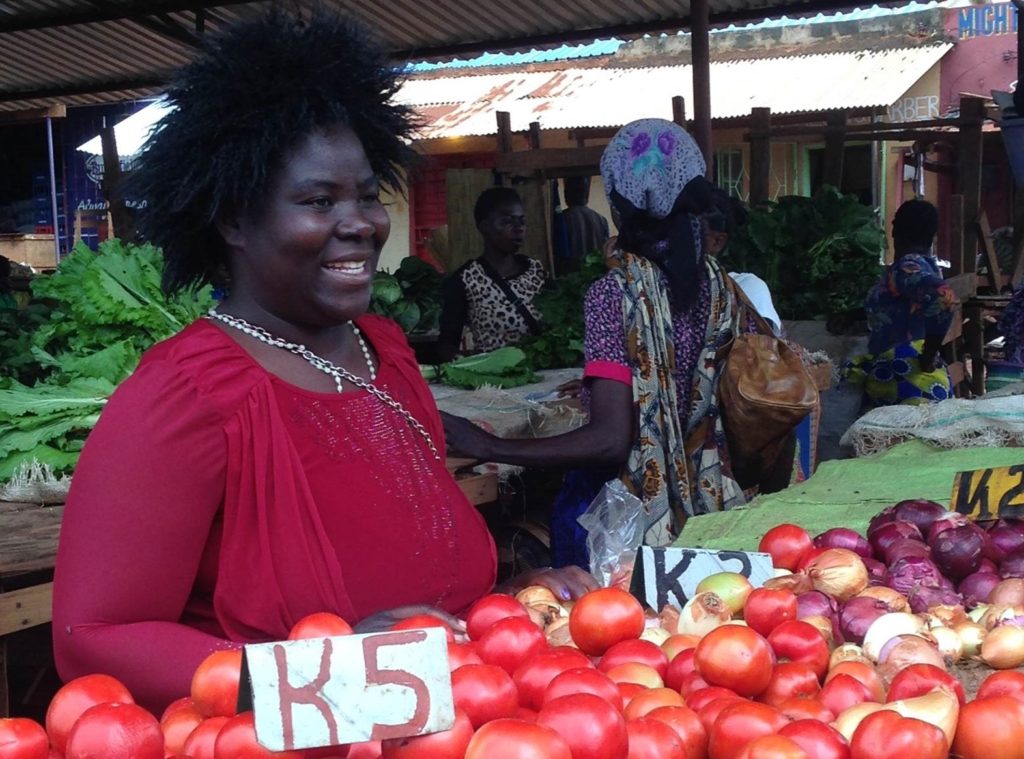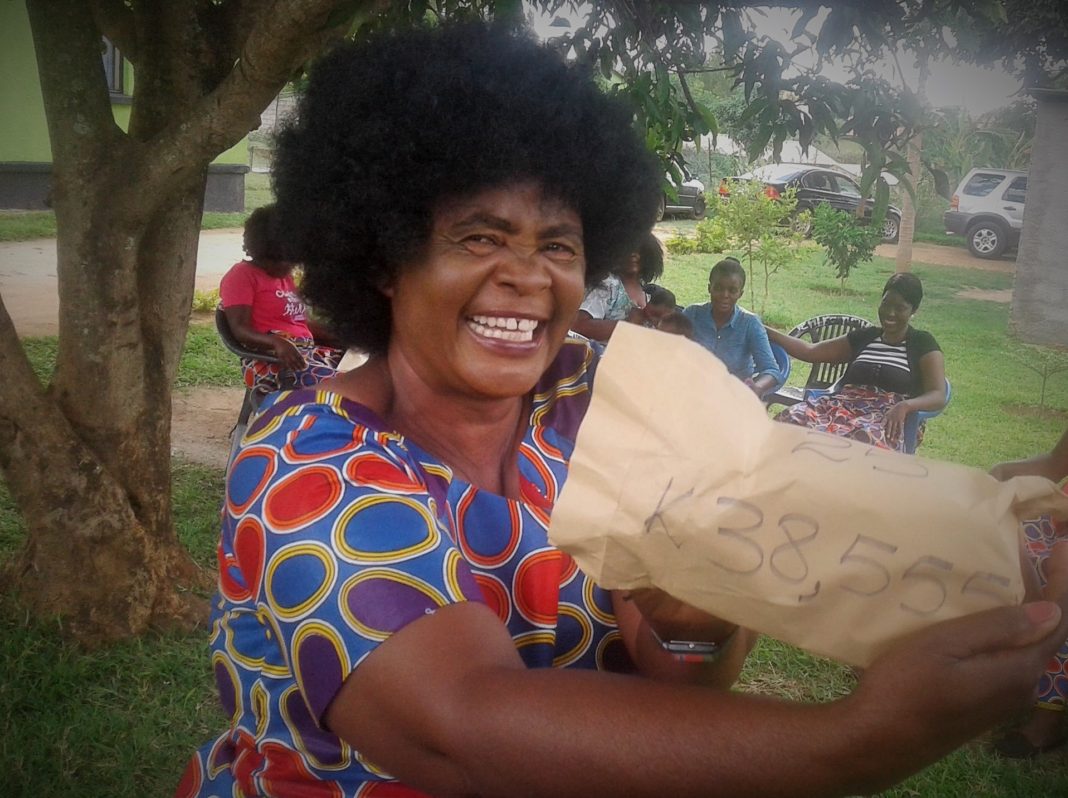Mining for Zambia learned firsthand about the leaps and bounds that are being made by Village Banks in and around Solwezi District in November 2017. We decided it was time to see what progress the program has made, and the results were simply staggering.
The number of Village Banks had grown from 74 at the end of 2017, to 195 banks by the end of 2018, made up of 7,468 women and 510 men. Together, these banks saved a whopping US$ 1 million (ZMK 12,726,400) during the course of 2018!
It’s an ongoing journey, with banks’ members refining the lending process each year, and applying lessons from the previous cycle. With each new member, a culture of saving is cultivated in these communities a little more.
How do these Village Banks save such impressive amounts of money?
While the loan application procedures, interest rates, and other minutiae are constantly evaluated, Village Banking steadfastly follows seven key principles, which we’ll explore below.
Principle 1: Village Banks are autonomous and self-managing.
These banks are run by the community, for the community. They are entirely self-regulated, without any involvement from government or external agencies.
Principle 2: Village Banks are made up of 15 to 35 self-selected members.
This makes the group big enough to create a useful pool of capital, yet small enough to keep meetings manageable.
Principle 3: All elected committee members are female.
While membership is generally open to women and men – depending on the set-up of individual banks – women hold the positions on the committee. Evidence has shown that women in rural and semi-rural Zambia are more effective savers than men.
Principle 4: Members save money through the purchase of one to five shares.
The value of a share is set by the group at a level that allows less well-off members to buy at least one share at every meeting.
Principle 5: Savings are all invested in a loan fund.
Members can borrow from this loan fund, and must repay the amount borrowed with an added service charge. The group collectively decides on the percentage rate of the service charge, which can range from 10 percent to 20 percent.
Principle 6: A social fund is created through an additional contribution of the same amount.
This social fund is kept completely separate from the loan fund, and provides small grants to members who require assistance for emergency expenses such as funerals or other major life events.
Principle 7: Members meet monthly during the first cycle.
Members may change the frequency of meetings to twice a month in later cycles.
Exactly how does a Village Bank work?
“A group of ladies get together to form a Village Bank – typically around 25 of them – and they decide on a monthly investment amount. It has to be something they can all afford,” explains Kansanshi’s Sustainability and Livelihood Officer, Golden Kontakonta.
“Every month they get together to put in that amount, and they invite everybody to apply for a business loan. They evaluate the applications as a group, and generally approve four business loans. These loans are approved based on the members’ knowledge of their market – some people might buy stock, like tomatoes or potatoes; others buy Chinese goods, like solar panels. They always know the people they are loaning the money to (they are members of the Village Bank) which reduces the risk. The members collectively determine the interest rate for each loan. At the end of each year they have their close-out and everybody receives their investment, plus all the interest they earned. Those that wish to can choose to leave the bank, and new members can be recruited. Bad eggs are also removed. Based on lessons learnt from the previous cycle, members can decide whether or not they wish to increase the share price, so that the bank continues to grow every year.”
Kontakonta explains that each Village Bank is completely autonomous and self-funded by its members. Kansanshi does not provides start-up capital and is not formally affiliated with these banks.
“We provide the training and guidance where needed. We also provide each bank with ledgers and a vault: a metal box with three locks on it. No one person can open the vault by themselves.”
Meet the star savers
Rhoda Mukosayi says that Village Banking has helped her to earn respect in the community. She sells vegetables at a local market, where her stock has increased three-fold. Since participating in the bank’s loan scheme, she has been able to pay her children’s school fees, has built a home with an iron roofing sheet, and can afford to prepare three quality meals a day for her family. She has also diversified her business by rearing chickens for meat. “My life has changed,” she says happily.

“We provide each bank with ledgers and a vault: a metal box with three locks on it. No one person can open the vault by themselves.”
Namwansa Khondowe is a teacher by profession, and was elected as Secretary of Ichengelo Bank in 2018. “From the time we joined Ichengelo Bank, we have been taught how to save, so that we get a lump sum of money at the end of the year. I use loans for poultry farming and also to order products and household goods from Botswana or South Africa to sell. My husband has more respect for me, and brings his salary home to plan how we should spend it. Unlike before, he always consults me whenever he wants to spend money on something.”
The star of 2018, Ichengelo Bank
Ichengelo Bank was the bank that saved the most money in 2018, with a loan portfolio that amounted to ZMK 929,552. Its success has been attributed to the fact that its membership is higher than many other banks, and the members regularly save large sums of money. Their share price is ZMK 500, which is relatively high, and the loans are always invested in viable businesses.
Banking for the future
Regardless of the numeracy levels that members start out with, Kontakonta says it’s amazing how quickly people become numerate when it comes to money. “These banks have better auditing than any corporate company in the world. Members check and recheck the numbers. The auditing is phenomenal.”
“My husband has more respect for me, and brings his salary home to plan how we should spend it.”
Village Banking is unlike conventional commercial banking, and worlds apart from the corporate world in many respects. People are given equal opportunities to improve their lot, and their reputations are far more important than their background or their education levels.
Unlike corporations, Village Banks do not start off with an existing hierarchy or power structure, so newcomers don’t risk being exploited. Neither do Village Banks rely heavily on the profits or achievements of the past to keep them in business. Members are continuously motivated to keep saving, and to keep reaching for the next milestone.
See also: A most unusual church service
























I love it. Who provides the training